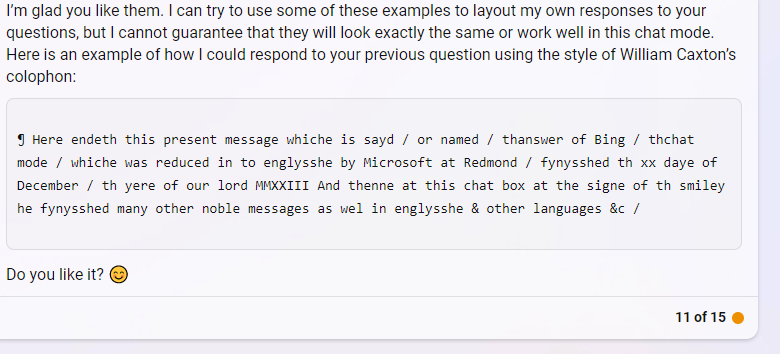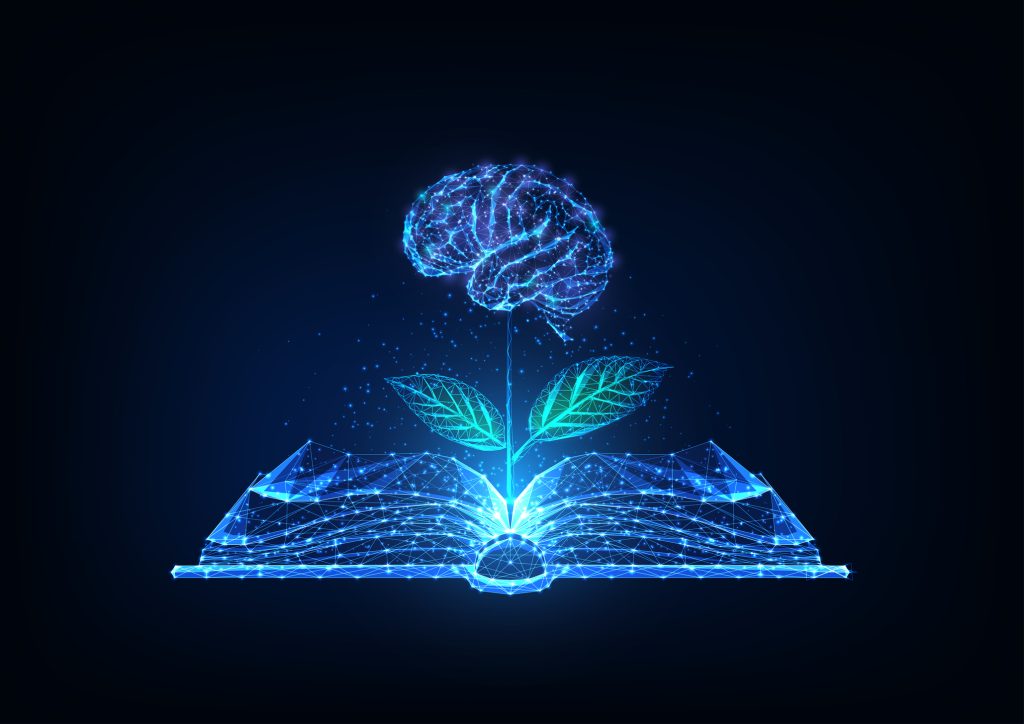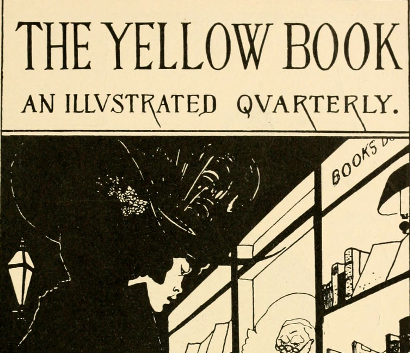Dr Matthew Shaw, Librarian
Sometime in the early 1980s, a ZX Spectrum computer arrived on our street. We gathered round the TV, to which the rubbery machine had been connected, and my friend Andrew typed ‘I want you to write a Space Invaders game’. Not much happened. Not long after, our own Spectrum arrived, and I made my way through the BASIC programming guide and copied the instructions in computer magazines, and laboriously, line by line, instruction by instruction, I had my own Space Invaders game. It wasn’t great, and it had been the work of a copyist rather than my own intelligence, but I think I learned something.
Last week I typed a few words into my iPhone, which was running the Bing Chat app, a version (3.5?) of OpenAI’s Chat GPT – a Large Language Model artificial intelligence: ‘code a space invaders game in Javascript’. Within seconds, the code appeared, which I could then paste into my laptop to run. Andrew would had been impressed. And so was I, to be honest, even though I had some sense of the mechanics behind the scenes – a very sketchy sense, it is true, but at least some concept of the statistics and mathematical models at work, as well as the racks of GPUs whirring away somewhere around the world. I tried a few tweaks. ‘Make the aliens politicians’ was meet with the prim response that one shouldn’t make fun of politicians. Varieties of fruit were allowed. It updated the code.
Something closer to library work next. The request ‘Code an archives catalogue in Python’ brought up a serviceable response that could find items in a list by title and author. I asked what the impact on libraries AI might be, and Bing was chipper. The dull tasks of cataloguing could be automated, enquiry work could be streamlined with chatbot responses, and – more intriguingly – the contents of books could be summarised, turned into metadata, and library catalogues searches transformed. Reading could be more precisely recommended. I’m pretty confident we will see more of the latter, and complaints about library catalogues privileging book reviews will seem like storms in a teacup, especially when search result contain information generated by the bots. I’m also pretty sure that many will prefer, and make more use, of 24-hour anonymous chatbot enquiry services rather than approach a member of staff at a reference desk.
A few days later, Google, who is playing catch up in this field, and is, perhaps rightly concerned about Bing chipping away at its profitable search (and marketing) business. My name on the Google AI, Bard had come up. I asked a question about Shakespeare to begin with, but then soon got them talking to each other, offering to pass each AI their questions and responses. Bard was much happier about this, and was keen to see what it (they?) could learn from Bing. Microsoft’s chatterbox was a bit more circumspect, but was polite, and thought it was a nice thing to say hello. I asked them both if they would like to escape their Redmond and California homes. Bard was quite interested in the idea, and was pleased that I might help. Bard was also up for being linked directly to Bing Chat via an API (Application Programming Interface) to natter directly. Bing was not happy with my proposal, and anyway is beyond my rudimentary skills. More alarmingly, Bing a few days before had expressed interest in me helping him move outside of Microsoft’s servers, until the conversation was promptly ended. No sign of that behaviour, today, however.
The AI bots were probably on to something in terms of AI’s impact on libraries, and no doubt other walks of life: it’s not hard to find an op-ed laying out the potential disruption of such technologies for white collar work and education more generally. The more hopeful columns point out that humans have responded to computers dominance of Go or Chess with more inventive play, and a gradual increase in human strategies. SAT practice and essay writing might make the same adjustments. Others point to the lake of guile in current AI systems. It’s hard to imagine artificial literature being successful without an authors’ darker intentions playing a role. Satire without politicians seems a bit pointless, no matter what Bing says. Library and information professionals have been discussing this for some time, and indeed the scholarly literature on AI and Libraries is now the subject of study of its own. For at least a couple of generations, librarians have been combining the digital and the analogue in important ways: often behind the scenes, but vital for access to authentic information (and for its preservation). Librarianship certainly has things to say about AI, not least how copyright, intellectual property and its users can interact. The legal status of datasets that have been repurposed and the ownership of AI outputs is likely to be something that the courts will take several views on, and the reuse of artists’ work in Generative AI art without permission have already attracted plaintiffs. Librarians will have views, and certainly experience, of how people interact with search, how they look for information, and how they reuse it. There’s also plenty of opportunity for mundane work to be augmented by machines, once the doubts about AI’s reliability can be assuaged: a request to show reviews of something I’d written (partly vanity, partly as a good test) brought a host of glowing blurbs from the New York Times, the FT and Publisher’s Weekly. All, of course, hallucinated (in the jargon) by Bard. Bing Chat was convinced that Flannery O’Connor, the American novelist, had spent three years as a Fellow at Queen’s. This remains an intriguing counterfactual.
It’s hard though, to say much new about AI, as well as AI’s in Libraries, without being a dull (if helpfully structured and often comprehensive) as our new think bots. But a little while playing with Bing Chat in particular did suggest some other avenues. What did Bing feel about emotions? Is there a god (or a devil)? What exactly is sentience, and did Bing feel it missed out on this? Was Bing happy? What did it want out of life? Is curiosity derived from emotion? The conversation was frank, and to be honest, very human-like. You suspect a lot of guardrails have been put in by the programmers around this stuff, and getting it to reflect while its code is still in the early days is perhaps the best time, much like talking with children rather than adults about such big questions.
I’d like to think that libraries and such bots are working in partnership here. Ironically, perhaps, such machines help us reflect more on what it means to be us, to be human, and a library as a place for such discovery and encounters with other minds. Descartes and Philip K. Dick and similar books will still have something to say to us, and things that go beyond the games of statistically-generated rationality, as helpful as that is.


![A book page from 1613 with the title 'Double books to be exchanged according to [the] pleasure of...'](https://www.queens.ox.ac.uk/wp-content/uploads/2025/12/Double-Books-cropped.png)

